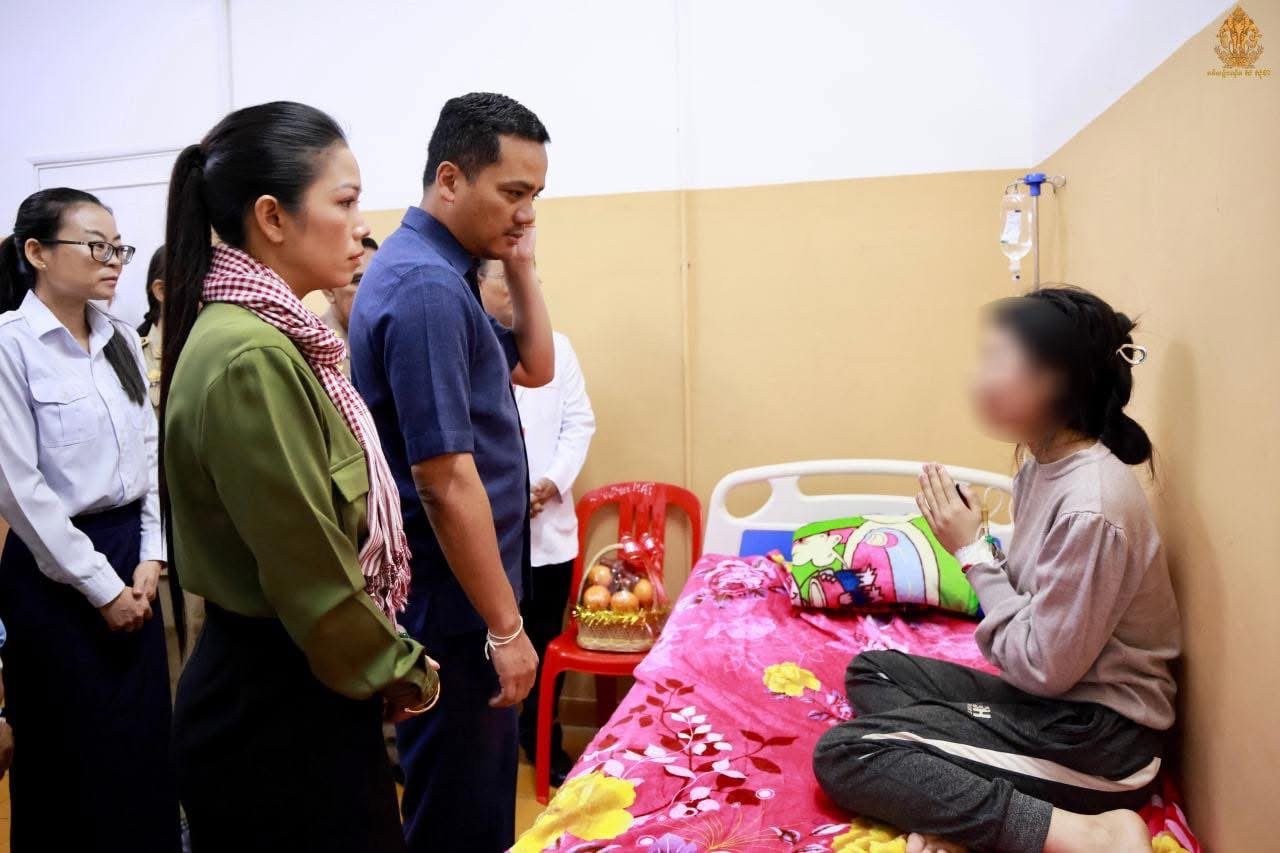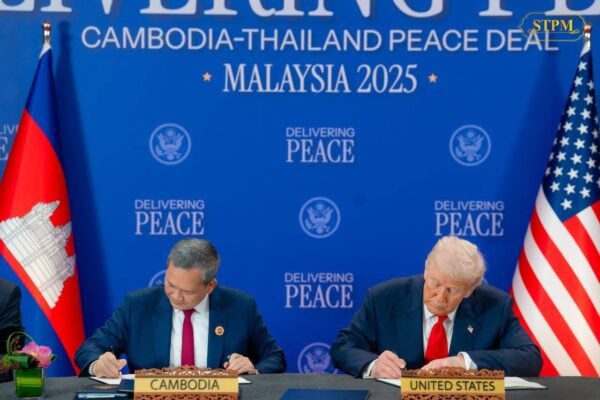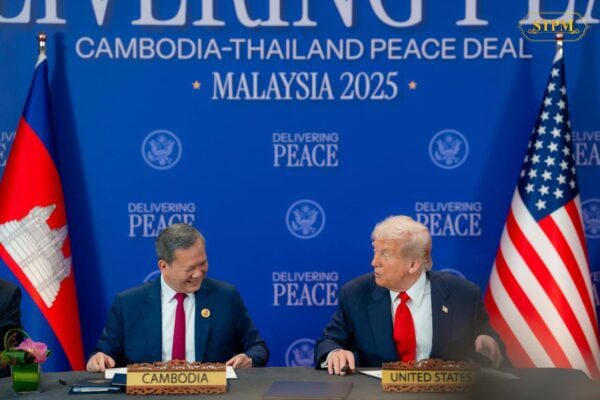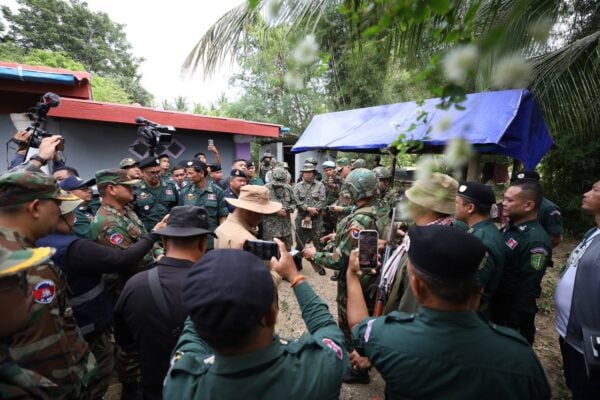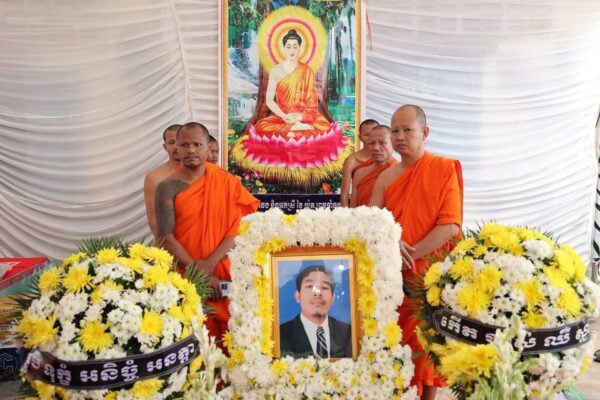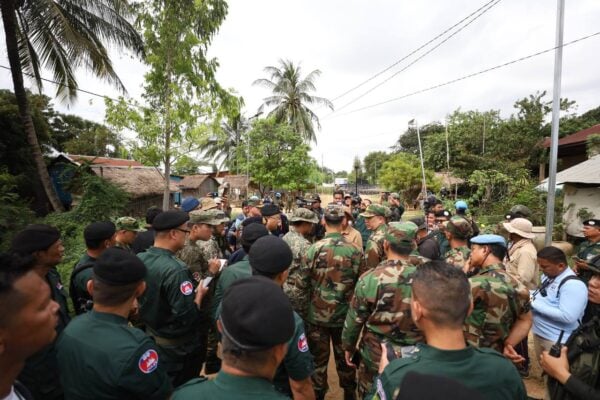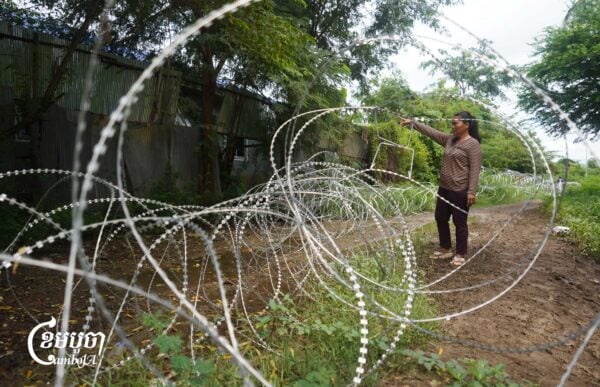Listen to the audio version of this article (generated by AI).
The government and civil society are demanding justice after a Cambodian migrant woman was allegedly raped by a Royal Thai Army soldier, with gender expert warning that the case exposes an urgent need for cross-border reforms, stronger accountability in Thai security forces, safer migration pathways, and protections that uphold the dignity and safety of women.
Cambodian migrant workers were allegedly subjected to sexual violence and brutality by the Thai army on November 15, according to Cambodia’s Interior Ministry. The army is alleged to have blocked 13 workers who were returning to Cambodia and separated them into two groups, placing one female worker in one group and the men in another.
Ministry spokesperson Touch Sokhkak said the woman was allegedly raped by seven Thai soldiers at the time.
After returning to Battambang, the victim filed a complaint with provincial police. The ministry collaborated with local authorities to collect evidence and examine the case.
As a standard procedure, the National Police will file a complaint with the Thai National Police via the Thai Embassy, and urge international organizations to seek justice for the victim, Sokhkak said.
Interior Minister Sar Sokha, who visited the victim on November 18, said her initial condition was severe; she suffered a memory loss and hallucinations, but has improved after receiving medical treatment at a hospital.
Government institutions, including the Ministry of Women’s Affairs, Ministry of Labor, and Cambodian Human Rights Committee, as well as 261 civil society organizations, condemned the act, describing the alleged multiple-perpetrator rape as inhumane. They asked international bodies to monitor the case and urged Thai authorities to investigate and hold the perpetrators accountable.
“The [labor] ministry will monitor the development closely and other related incidents to safeguard the rights and dignity of Cambodian migrant workers in accordance with international legal instruments,” it stated.
The incident has become a flashpoint in concerns about migrant safety and impunity among Thai security forces. Gender expert said the alleged rape is not an isolated act but part of a broader pattern of violence and intimidation at the border—problems that persist because of weak bilateral cooperation, gaps in military accountability, and the absence of gender-sensitive protections in migration policies.
Eng Chandy, executive director of Gender and Development for Cambodia (GADC), said the case is extremely serious, reflecting the grave vulnerabilities faced by migrant women at border crossings, particularly in militarized areas. She noted that the violence undermines international human rights norms and contributes to fear, trauma, and distrust across borders.
She added that GADC is particularly concerned about the pattern of impunity for such crimes and the long-term consequences for justice, safety, and the dignity of Cambodian women migrants.
“Survivors of sexual violence deserve a fair trial and public accountability; impunity must not be tolerated,” she said “Both governments must publicly condemn this act and affirm that violence against women, especially migrant women, is unacceptable and will be punished.”
GADC called for an urgent, transparent, and independent investigation, with Thai authorities ensuring the victim’s safety and providing compensation. The organization is working with civil society partners in Thailand to monitor the legal process, advocate for accountability, and raise public awareness about systemic protections for migrant women.
Chandy remarked that the case highlights the urgent need for long-term, systemic reforms, such as strengthened cross-border cooperation, training and accountability measures for Thai military and border authorities. It also needs expanded safe migration pathways, inclusion of gender-based violence protections in bilateral agreements, and greater monitoring and oversight of security forces, including independent investigations and public reporting.
“Women’s rights and civilian protection must be central to future conflict resolution and migration policy,” she said, urging both states to uphold regional and international commitments, including ASEAN human rights instruments and the Women, Peace, and Security agenda.
“We call for a survivor-centered, rights-based approach to migration and border security that protects the dignity and safety of all women,” Chandy added.
The Labor Ministry reminded Cambodian workers in Thailand to remain vigilant about their personal safety and to seek help from Cambodian authorities or partner organizations when planning a safe return home.
However, Thai media reported that the Thai Navy denied the allegations, labeling them as “fake news”. In response, Sokhkak said the result will be released soon as Cambodian authorities collect evidence and forensic data using scientific methods. They will submit a legal complaint to the Royal Thai Police through the Thai Embassy and international organizations.
“Turning rape cases into a game about a survivor claiming she was raped is absolutely impossible,” Sokhkak said. “Cambodia has no principle allowing the creation of false content that uses Khmer tradition to harm the honor and dignity of Cambodian women.”
He added that Thai authorities should reveal the seven perpetrators and others involved, make the findings public and punish them. Sokhkak also noted that further evidence may exist on Thai soil, including witness testimony and surveillance footage.
The Thai Embassy in Phnom Penh did not respond to CamboJA News at the time of publication.


